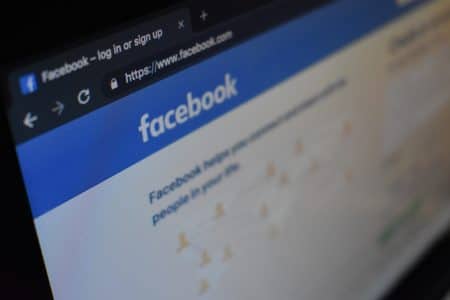Why Does Multitasking Make You Depressed and Less Productive? - Dispatch Weekly
January 20, 2017 - Reading time: 9 minutes

Multitasking is a by-word for productivity, right? Apparently estimates are that you can lose up to 40 percent of your productivity whilst multitasking.
Around 40 percent of the world population has an Internet connection today, whereas in 1995 it was less than 1 percent. With the rise in technology and smartphones, this ensures users can track their fitness, play on apps and check emails.
Work and leisure intersects when technology is added into the equation as office workers use sites like Facebook to take a mental break.
Pew Research Center did a study in 2014 into how workers used social media. They found: 34% never used social media while at work, although 27% used social media to connect with friends and family, with 24% using it to support professional connections.
#1 Multi-Platform Social Media Use Makes You More Depressed and Anxious
A new study by University of Pittsburgh Schools of the Health Sciences has found that millennials using multi-platforms are more likely to be depressed and anxious among young adults.
Those using seven to 11 social media sites were more than three times more likely to be depressed and anxious compared to those who used zero to two platforms.
The study, which was published in the journal of Computers in Human Behavior in April, used 1,787 US adults from 19-32 years old and linked time spent on social media sites to increased risk from negative mental health problems.
Lead author and physician Brian A. Primack, M.D., Ph.D., director of CRMTH said, “This association is strong enough that clinicians could consider asking patients with depression and anxiety about multiple platform use and counselling them that this use may be related to their symptoms.”
#2 Reduces Productivity

Stanford researchers studied two groups of participants, examining how multitasking affects focus. Those that multitasked regularly thought that multitasking boosted their productivity, but the study found the opposite to happen.
The multitaskers performed worse than the participants who did one thing at a time as they were slower at switching from one task to the next due to not being able to organize their thoughts and being poor at filtering out unnecessary information.
This suggests that the brain can only concentrate on one task at a time and trying to do multiple tasks confuses it. Completing one action at a time ensures it is done well.
#3 Task Switching Causes Inefficient Work Output
The popular idea that switching in between tasks increases efficiency is inaccurate as it takes more time doing this than focusing on one task at a time.
Multiple switching uses much of your brain including the pre-frontal cortex, the posterior parietal lobe, the anterior cingulate gyrus and the pre-motor cortex.
Doing one cognitive task at a time may seem slow, seeing as there are multiple digital outlets and access to information nearby, but our brains need to focus on one specific task rather than flooding it with activities.
#4 The Epidemic Of Overwhelm
The epidemic of overwhelm refers to the access of information we receive on a daily basis. From surfing the Internet, to social media, magazines, newspapers and TV, the amount of information we digest is enormous. There are also technologies and apps to distract us and divert our attention.
All of this distraction and lack of focus impacts on productivity and IQ, as the University of London did a study, concluding that being connected 24 hours a day affects IQ, so much that it is the equivalent of losing a night’s sleep or taking marijuana.
The book, ‘Your Brain at Work’ by David Rock, outlines how distractions can lead to dire consequences:
“One study found that office distractions eat an average 2.1 hours a day. Another study, published in October 2005, found that employees spent an average of 11 minutes on a project before being distracted.”
“After an interruption it takes them 25 minutes to return to the original task, if they do at all. People switch activities every three minutes, either making a call, speaking with someone in their cubicle, or working on a document.”
#5 Answering Emails Could Take Nearly Half an Hour to Get Back on Task

It’s natural to want to respond to emails quickly, but it has been suggested by studies that it could take you half an hour to get back on task.
Returning to emails uses up cognitive resources that could be employed in a main task. The Overload Research Group, a group of academic and corporate researchers found that U.S. workers waste about 25 percent of their time dealing with “an incessant stream of data,” which leads to a loss of $997 billion a year for employers.
Turning off alerts on your computer and factoring in when your most productive times of work are to do more complex jobs is vital. Sectoring in easier tasks in less busy periods can optimize workflow.
Positive Actions to Take to Increase Focus and Productivity
- Quit social media: how many platforms are you signed on? How much do you use each of them and what do you gain? If you haven’t been on one for weeks, consider deleting or at least deactivating it.
- Make a to-do list: prioritize tasks with the most important at the top. Cluster similar tasks together, making it easier to complete.
- Get used to doing one-thing at a time: turn off your phone at set times and put empowering music on to increase focus. Do not check emails in between the task. Get used to finishing one task at a time with regular, quality breaks that involve moving, going outside and hydrating
- Select your media: instead of consuming every media source, choose carefully which ones apply to your interests and what style of media suits you more. Do you like podcasts, magazines or TV broadcasts? By minimizing your outlets, this helps create space in your daily routine to focus on what is important.
- Emails: set aside time to answer emails when you have completed a complex task. Don’t continue to answer them all throughout the day since this can increase feelings of being overwhelmed with diverting your attention from different sets of tasks.
What distracts you regularly? What one task can you do today that will increase your concentration?

DW Staff
David Lintott is the Editor-in-Chief, leading our team of talented freelance journalists. He specializes in covering culture, sport, and society. Originally from the decaying seaside town of Eastbourne, he attributes his insightful world-weariness to his roots in this unique setting.




